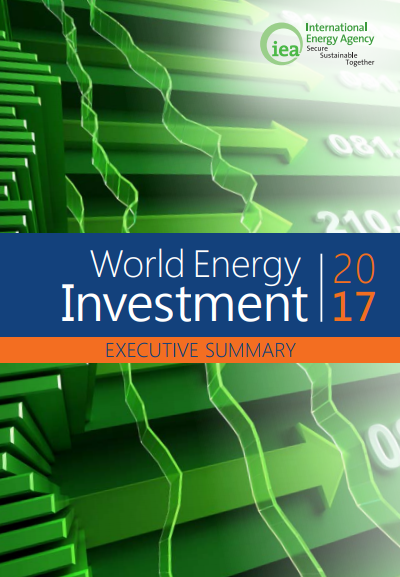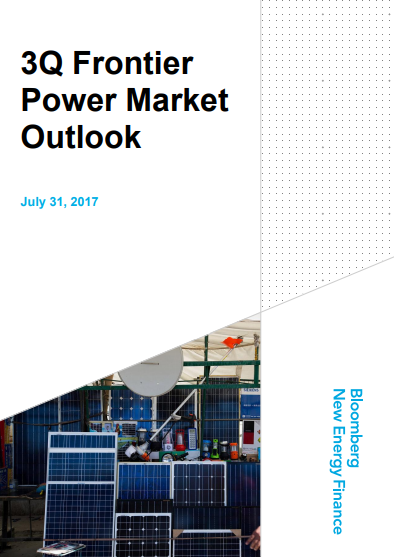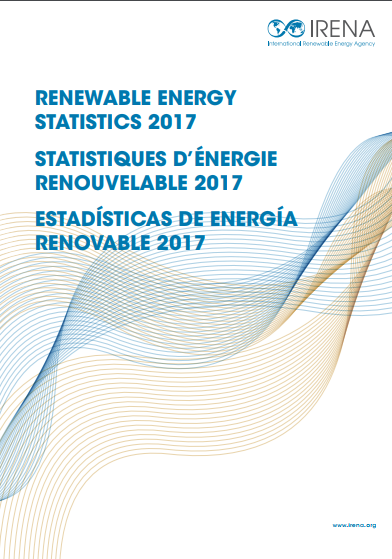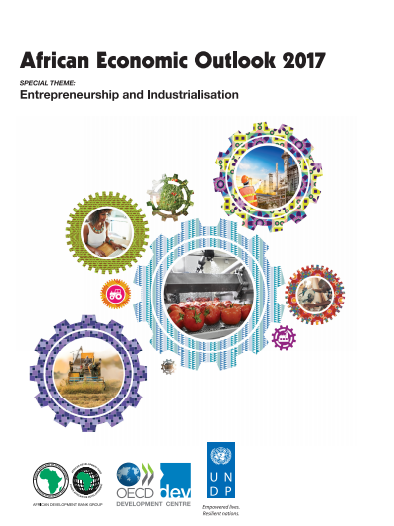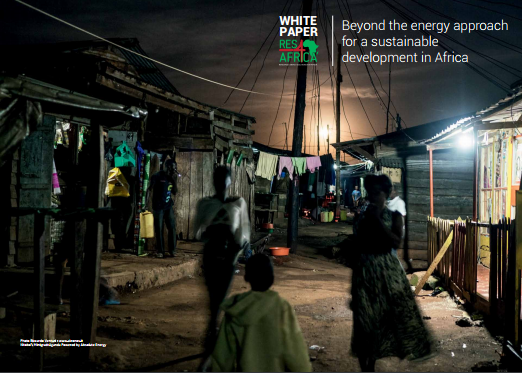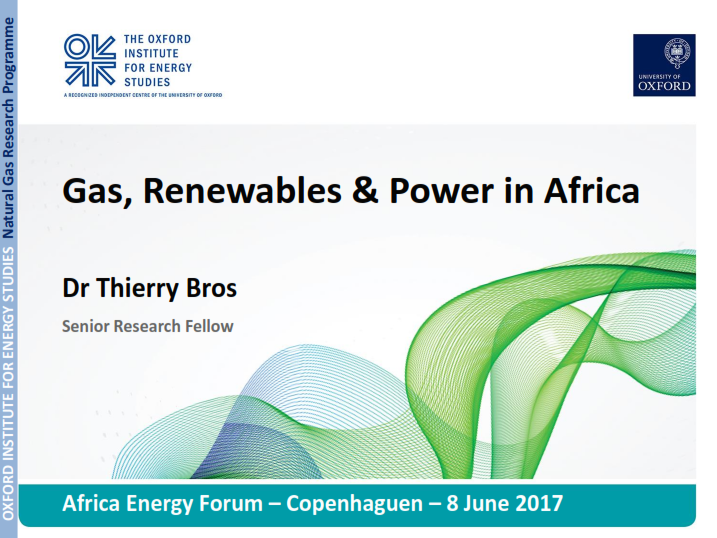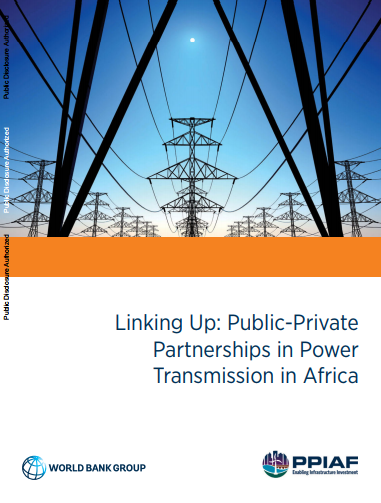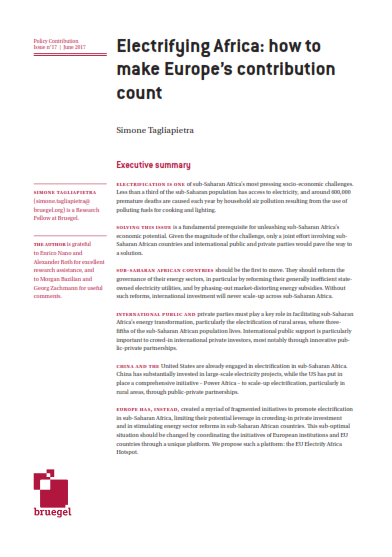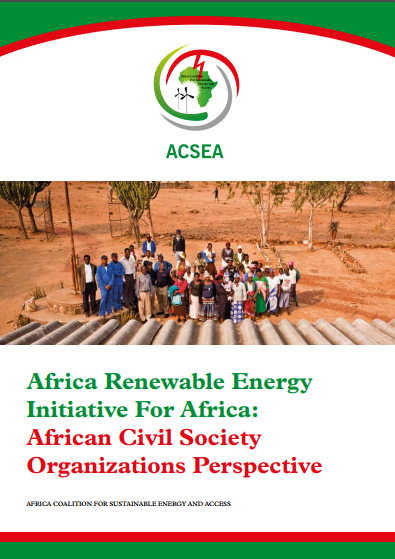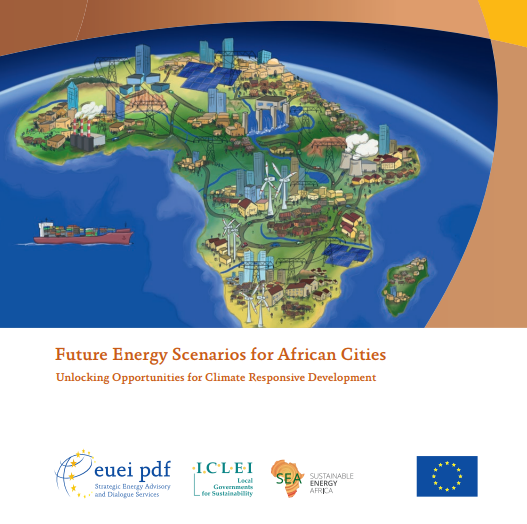We post here the relevant reports for the power sector in Africa. Feel free to join our efforts and share us any other you may have found. We'd be glad to add them to the list. Just sent an email to This email address is being protected from spambots. You need JavaScript enabled to view it.
Browse by Region:
Publication date: 2017, July
Author: Energy 4 Impact
Description: Debt crowdfunding appears to demonstrate the most promising and sustained growth of all energy access related crowdfunding activity. Although debt crowdfunding was previously dominated by zero-interest (to lender) microloans, interest-bearing working capital loans grew significantly in 2016. They now account for almost half of all energy access related debt crowdfunding, while they accounted for less than 10% of debt crowdfunding in 2015.
Download Report >>
Publication date: 2017, July
Author: IEA
Description: World Energy Investment 2017 provides a critical foundation for decision making by governments, the energy industry and financial institutions.
With analysis of the past year’s developments across all fuels and all energy technologies, the report reveals the critical issues confronting energy markets and features the emerging themes for 2017 and beyond. It highlights the ways in which investment decisions taken today are determining how energy supply and demand will unfold tomorrow, complementing the forecasts and projections found in other IEA publications.
This year’s edition examines the financial landscape for energy investment and how financing flows are evolving in relation to renewable energy expansion, shorter-cycle oil and gas projects, and innovations in energy efficiency financing.
Download Report >>
Publication date: 2017, July
Author: Bloomberg New Energy Finance
Description: The market for micro-grids and hybrid generation in emerging economies is getting bigger, with particularly strong demand from islands, remote regions, and the mining sector. While the project count remains small, policy-makers and project developers are growing more comfortable with the role that micro-grids and stand-alone solar kits play in serving remote regions.
Visit Website >>
Publication date: 2017, July
Author: IRENA
Description: The International Renewable Energy Agency (IRENA) has set out to produce comprehensive, reliable data sets on renewable energy capacity and use worldwide. The Renewable Energy Statistics 2017 yearbook shows data sets on renewable power-generation capacity for 2007-2016, renewable power generation for 2007-2015 and renewable energy balances for about 100 countries and areas for 2014 and 2015. Further, it features statistics on investments in renewable energy from 18 major multi-lateral, bilateral and national development financial institutions, presented for the period 2009-2015.
Download Report >>
Visit Website >>
Publication date: 2017, July
Author: IRENA
Description: The International Renewable Energy Agency (IRENA) produces comprehensive renewable energy statistics on a range of topics. This publication presents renewable power generation capacity statistics for the last decade (2007-2016) in trilingual tables.
Renewable power generation capacity is measured as the maximum net generating capacity of power plants and other installations that use renewable energy sources to produce electricity. For most countries and technologies, the data reflects the capacity installed and connected at the end of the calendar year. Data has been obtained from a variety of sources, including IRENA’s questionnaire, official national statistics, industry association reports, other reports and news articles.
Download Report >>
Visit Website >>
Publication date: 2017, June
Author: AfDB, OECD, UNDP
Description: The African Economic Outlook (AEO) presents the current state of economic and social development in Africa and projects the outlook for the coming two years. The AEO is a product of collaborative work by three international partners: the African Development Bank, the OECD Development Centre and the United Nations Development Programme.
AfricanEconomicOutlook.org is the only resource on Africa which employs a cross-country, macro-economic framework, allowing for comparative analysis both over time and across countries. It also undertakes in-depth studies of sectors critical for the continent’s development. Beyond the country outlooks, you will find important resources such as ongoing research, news and events.
Download Report >>
Visit Website >>
Publication date: 2017, June
Author: Smart Villages
Description: This pocket guide is intended as a quick reference to off-grid technologies, policies, and impacts – including stories of successful village energy projects from across the global south.
For remote off-grid villages, local solutions are often both more realistic and cheaper than national grid extension.
Together, energy and entrepreneurship underpin lasting development in smart villages, alongside the many services they can propel: health, education, WASH, livelihoods and productive uses of energy… and beyond.
Download Report >>
Visit Website >>
Publication date: 2017, June
Author: RES4Africa
Description: With this White Paper, RES4Africa aims to provide input for one event focused on “innovative solutions for a secure and sustainable energy access” and, in particular, on the productive use of energy as a driver to achieve social and economic development in Africa.
Download Report >>
Publication date: 2017, June
Author: University of Oxford
Description: This presentation was given by Thierry Bros at the Africa Energy Forum in Copenhagen, 7-8 June 2017. Historically Africa is one of the world’s most neglected energy provinces where affordable clean energy is urgently needed. This presentation forms part of the OIES Gas Programme work on Africa and part of its ongoing research programme looking at the future of gas in the global energy mix.
Download Report >>
Publication date: 2017, June
Author: BMZ
Description: The German Federal Minister for Economic Cooperation and Development (BMZ), co-chair of the Africa-EU Energy Partnership, has launched his new initiative “Green people´s energy for Africa” as part of the Marshall Plan with Africa. Minister Müller intends to broaden Germany’s support of decentralised energy solutions in rural areas through municipalities, private investments and local cooperatives. Müller: “Africa’s potential for renewable energy is enormous. At the same time, more than half the population of Africa has no access to electricity. Decentralised supply structures based on renewable energy sources are playing an important role to provide quick and effective supply to rural areas.”.
Download Report >>
Publication date: 2017, June
Author: World Bank
Description: A new World Bank report entitled “Linking Up: Public-Private Partnerships in Power Transmission in Africa” suggests that it is possible for the private sector to finance, build and maintain Africa’s electricity transmission infrastructure - also known as the independent power transmission model (IPT) - and help expand electricity coverage in the region.
Transmission – like generation and distribution of power – is a critical factor in getting electricity across thousands of miles to those who need it most. Expanding the transmission network requires between $3.2 billion and $4.3 billion every year until 2040 – something the region’s electricity utilities that are often state-run, will not be able to fulfill on their own.
Download Report >>
Visit Website >>
Publication date: 2017, June
Author: Bruegel
Description: Electrification is one of sub-Saharan Africa’s most pressing socio-economic challenges. Europe has created a myriad of fragmented initiatives to promote electrification in sub-Saharan Africa, limiting their efficacy. This sub-optimal situation should be changed by coordinating the initiatives of European institutions and EU countries through a unique platform: the EU Electrify Africa Hotspot.
Download Report >>
Visit Website >>
Publication date: 2017, May
Author: ACSEA
Description: In the publication published with support from Brot für die Welt and Germanwatch, the African Coalition for Sustainable Energy and Access (ACSEA) presents African CSOs viewpoints and demands with regard to AREI and surrounding activities.
Download Report >>
Publication date: 2017, May
Author: HYSTRA
Description: This report is intended for entrepreneurs, as well as large companies, investors, donors, and governments who are open to learn from inspiring practitioners, and who believe that market-based approaches have a major role to play in the sustainable provision of energy for all.
Download Report >>
Publication date: 2017, May
Author: Exim Bank of India
Description: Exim Bank of India - Power Sector in Africa: Prospect and Potential.
Download Report >>
Publication date: 2017, April
Author: Brookings
Description: Financing sources for African energy infrastructure include domestic financing by African governments and external financing in the form of ODF from multilateral institutions (such as the African Development Bank and the World Bank, as well as most of the OECD-DAC donors), PPI, and Chinese financing.
Download Report >>
Visit Website >>
Publication date: 2017, April
Author: AfDB
Description: GMG Market Assessment Methodology: Part 1: Evaluation of Methodologies and Best Practices Available to assess GMG Potential.
Download Report >>
Publication date: 2017, April
Author: AfDB
Description: GMG Market Assessment Methodology: Part 2: Creation of an Opportunity Assessment Methodology.
Download Report >>
Publication date: 2017, April
Author: AfDB
Description: The New Deal on Energy for Africa is a partnership-driven effort with the aspirational goal of achieving universal access to energy in Africa by 2025. To achieve this goal, the African Development Bank has worked with governments, the private sector, and bilateral and multilateral energy sector initiatives to develop a Transformative Partnership on Energy for Africa – a platform for public private partnerships for innovative financing in Africa’s energy sector.
Download Report >>
Publication date: 2017, April
Author: EUEI PDF
Description: The EUEI PDF has conducted a study on potential scenarios outlining the energy and climate responsive growth situations from now to 2050 in cities in sub-Saharan Africa. The study aims to provide an input to shape the policy dialogue around the role that African cities can and should play in the implementation of their countries’ Nationally Determined Contributions (NDCs). The research provides strategic directions to the following four stakeholder groups: African public institutions at national, regional and municipal levels, the private sector, civil society and the international donor community.
Download Report >>
Visit Website >>






